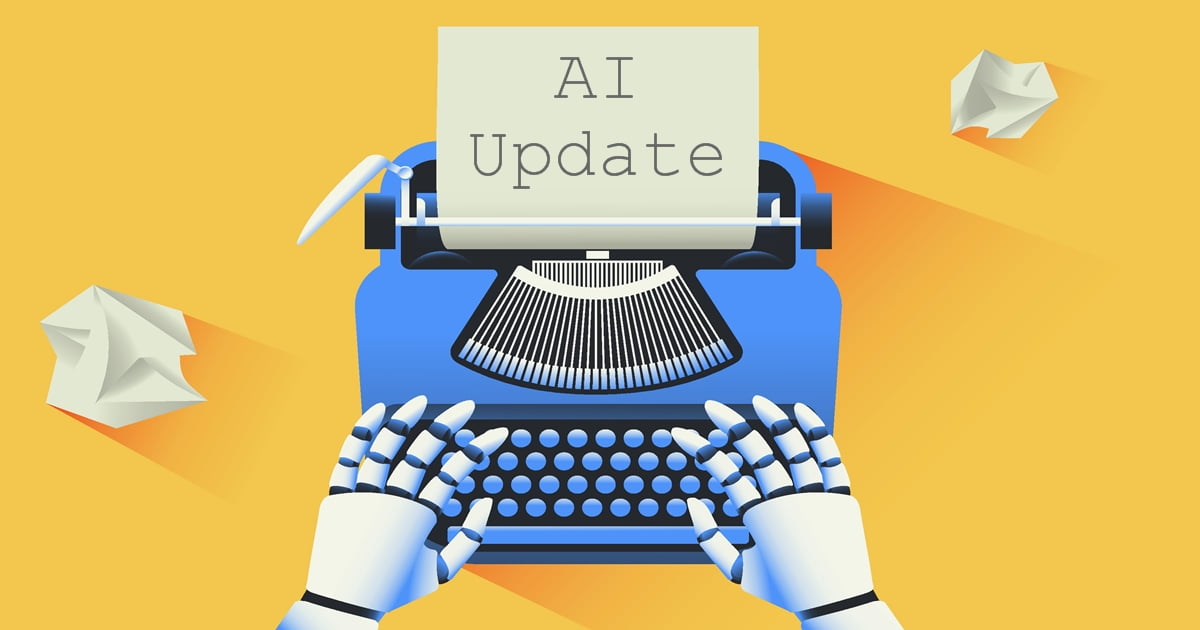AI Update, February 14, 2025: AI News and Views From the Past Week

```html
AI Update: A whirlwind of advancements and controversies
Remembering the Past: AI Gets a Memory Boost
Google's Gemini AI is now playing the memory game! With a new recall feature, Gemini Advanced subscribers can enjoy seamless conversations without the frustration of repeating themselves. Imagine AI that remembers your project discussions and past chat summaries. This personalized approach is a game-changer for marketers, promising more effective chatbot interactions and virtual assistance for customer engagement.
Lights, Camera, AI Action: YouTube Shorts Gets Creative
YouTube is unleashing the power of Google's Veo 2 model on its Dream Screen feature. Now, creators can conjure AI-generated video clips for Shorts based on simple text prompts. Choose your style, add cinematic effects, and voila! Engaging content at your fingertips. This is a huge win for marketers seeking to quickly create eye-catching content for short-form social media platforms.
Reddit: The Unexpected AI Data Powerhouse
Reddit, the land of vibrant online discussions, has emerged as a major player in AI data licensing. Its treasure trove of user-generated content is proving invaluable for training AI models, contributing to Reddit's first profitable quarter. Marketers, take note: authentic community engagement is gold. Reddit’s role in AI highlights this, signaling new opportunities and the need to adapt to AI-driven content monetization.
AI News: Fact or Fiction? BBC Raises a Red Flag
A BBC investigation has revealed a concerning trend: AI chatbots, including big names like ChatGPT and Gemini, are struggling with accuracy in news summaries. Over half of the AI-generated responses contained errors, raising serious questions about AI's ability to distinguish fact from opinion. Marketers relying on AI for content creation should heed this warning. Verification is crucial to maintain credibility and avoid spreading misinformation.
BuzzFeed's Bold Move: An AI-Free Social Haven
BuzzFeed is charting a new course, developing a social media platform that prioritizes authentic human interaction over algorithm-driven engagement. This move challenges the status quo of platforms like Meta and TikTok, offering users a space to connect without the endless scroll. Could this shift create new marketing opportunities where genuine engagement triumphs over algorithmic virality?
OpenAI's Grand Vision: One Model to Rule Them All
OpenAI is on a mission to simplify the AI landscape with a unified model that seamlessly integrates text, image, and reasoning capabilities. This streamlined approach promises to enhance automation and personalization in marketing, making AI tool selection less daunting and improving efficiency.
Grok-3: Elon Musk's "Scary Smart" AI Contender
Elon Musk is teasing the imminent arrival of Grok-3, an AI chatbot he claims outperforms the competition. Trained on synthetic data and fueled by real-time information from X (formerly Twitter), Grok-3 has the potential to revolutionize customer interactions and market analysis with unprecedented speed and insights.
The Legal Battle for AI Data: Thomson Reuters Scores a Victory
Thomson Reuters has won a significant copyright case against Ross Intelligence, setting a precedent in the world of AI training data. This legal victory underscores the importance of compliance for marketers using AI-generated content. Ensuring your AI tools respect copyright laws is essential to avoid legal pitfalls.
Perplexity AI's Sonar: Searching at the Speed of Sound
Perplexity AI has launched Sonar, a blazing-fast search model powered by Meta's Llama 3.3 70B. This speed demon promises faster, more accurate search results, impacting SEO and content strategies. Marketers, get ready to prioritize factually accurate, high-quality content that aligns with AI-enhanced search algorithms.
The AI Paradox: Boosting Productivity, Diminishing Critical Thinking?
A Microsoft study raises a crucial question: can overreliance on AI stifle critical thinking? The research suggests that users often accept AI-generated results without question, particularly when less familiar with a task. Marketers must encourage human oversight and critical evaluation of AI outputs to maintain high-quality content and strategic decision-making.